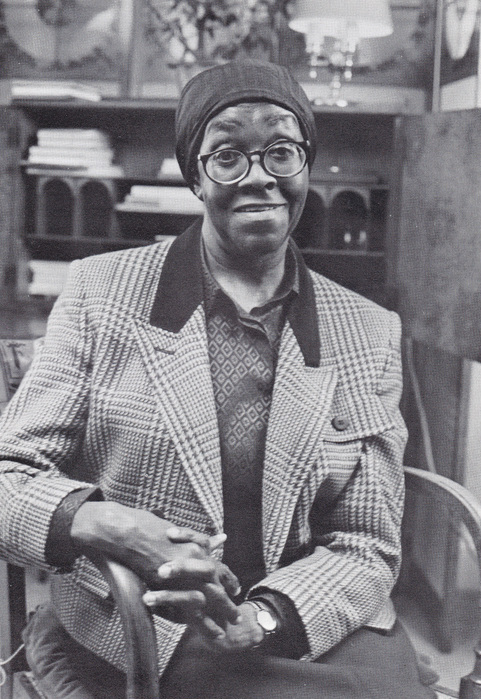 Gwendolyn Brooks is the writer who changed the future, inviting everyone to the party, while admitting “Art hurts, Art urges voyages, and it is easier to stay home.”
Gwendolyn Brooks is the writer who changed the future, inviting everyone to the party, while admitting “Art hurts, Art urges voyages, and it is easier to stay home.”
She started in a tradition. She was influenced and encouraged by James Weldon Johnson and Langston Hughes. They advised her to study the art and she dropped herself into the world of letters, as she had wanted to do since childhood. She had little in common with T.S. Eliot, e e cummings, and Walt Whitman, but from other poets she learned technique.
Her themes were always those of family, poverty, and the hard-earned path. She expressed what she saw lyrically; combining classicism and colloquialism never heard from a Black woman writer in exactly this way. Women are at the center of her literature and later she would speculate on what it meant to be “black first, a woman next, and a poet third.” In truth, all these were parallel in her life and work, with each taking precedence at different times.
A master of form, her novel Maud Martha (1953) is so distilled, it is like poetry, where every word counts. Annie Allen (1949), which won the Pulitzer, is narrative poetry of great originality.
Always the social conscience was evident, especially when the civil rights struggle began to fill the mind of the nation. Through her association with Black writers who were Black nationalists during the 1960s, Brooks entered a political world that altered her artistic consciousness. As she wrote of the dreams of Black people, Brooks transformed the commonplace and the vernacular to a new literature. Yet she said, “I want to be direct without sacrificing the kinds of music and picturemaking I’ve always been interested in.”
Originally she’d wanted to be a journalist, and Brooks saw herself as reporting the news of her people. Through the 1970s and 80s she clarified differences in the white and Black cultures. While Gwendolyn Brooks addressed a society torn apart, she wrote with compassion for all humankind. At the time of her death, she was a unifying figure, one of the best-loved poets in America.
Grace Cavalieri's newest publication is What the Psychic Said (Goss Publications, 2020). She has twenty books and chapbooks of poetry in print, and has had 26 plays produced on American stages. She founded and still produces "The Poet and the Poem," a series for public radio celebrating 40 years on-air, now from the Library of Congress.. She received the 2013 George Garrett Award from The Associate Writing Programs. To read more by this author: Grace Cavalieri: Winter 2001; Introduction to "The Bunny and the Crocodile" Issue: Spring 2004; Grace Cavalieri on Roland Flint: Memorial Issue; Grace Cavalieri: Whitman Issue; Grace Cavalieri: Wartime Issue; Grace Cavalieri: Evolving City Issue; Grace Cavalieri: Split This Rock Issue; Grace Cavalieri on Ann Darr: Forebears Issue; Grace Cavalieri on "The Poet & The Poem": Literary Organizations Issue.